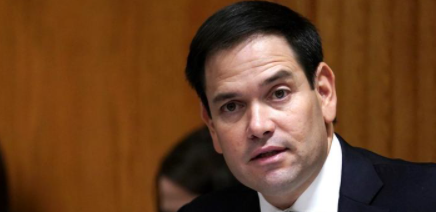
Read more at the Washington Examiner
The top Republican on the Senate Intelligence Committee is pushing a bill that would block Small Business Administration loans or funding from going to companies that are based in China or are partially owned by Chinese citizens as part of a broader effort to clamp down on Communist Party influence.
Sen. Marco Rubio introduced on Thursday the Preventing SBA Assistance From Going to China Act, aiming to block any SBA assistance from going to Chinese citizens, with the bill saying that U.S. taxpayer assistance through SBA may not be provided to any small business that is headquartered in China or that has more than 25% of the voting stock of the company owned by affiliates that are citizens of China. Current law allows SBA to help qualified small businesses operating within the United States, so many Chinese-owned companies with a U.S. presence are technically eligible to receive federal benefits from SBA, potentially including guaranteed loans, disaster loans, surety bonds, and research or development grants.
“American businesses are no stranger to the wide range of strategies Chinese firms use to starve out their competition,” Rubio said in a statement to the Washington Examiner. “Exploiting taxpayer-subsidized SBA programs designed to boost our small businesses is among the most egregious. This legislation would ensure that U.S. tax dollars aren’t giving Chinese firms an unfair advantage over American small businesses.”
It is believed Chinese-affiliated firms receive SBA assistance, but the full extent of the problem is yet unclear, in part because such assistance is not currently barred by federal law. An analysis last August by the Horizon Advisory consulting firm, for instance, found that more than 125 companies either owned by or invested in by Chinese entities had received SBA and the Treasury Department emergency loans under the Paycheck Protection Program. Those U.S. taxpayer-funded loans totaled between $192 million and up to $419 at the time, and that number has undoubtedly grown.


